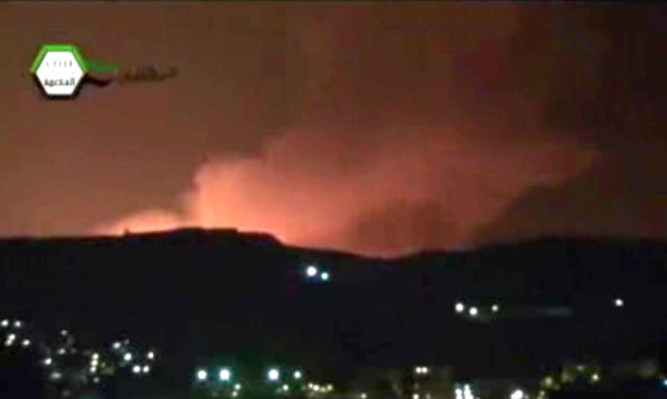Syria has condemned the Israeli airstrikes against targets around Damascus, saying the attacks aim “to give direct military support to terrorist groups” fighting the government.
The Syrian Foreign Ministry also said yesterday in a letter sent to the United Nations and the UN Security Council that the “Israeli aggression” killed and wounded several people and “caused widespread destruction”.
Syria’s government refers to rebels trying to topple president Bashar Assad’s regime as “terrorists”.
Israeli warplanes struck areas in and around the Syrian capital, setting off a series of explosions as they targeted a shipment of highly accurate, Iranian-made guided missiles believed to be bound for Lebanon’s Hezbollah militant group.
The attack, the second in three days and the third this year, signalled a sharp escalation of Israel’s involvement in Syria’s bloody civil war.
Syrian state media reported that Israeli missiles struck a military and scientific research centre near Damascus and caused casualties.
While the government tried to use the attacks to taint the rebels by linking them to Israel, Syria’s arch rival, the airstrikes still pose a dilemma for an Assad regime already battling a relentless rebellion at home.
If it fails to respond, it looks weak and opens the door to such airstrikes becoming a common occurrence. But any military retaliation against Israel would risk dragging the Jewish state and its powerful army into a broader conflict.
The tempo of the new strikes added a dangerous dynamic to the conflict, fuelling concerns that events could spin out of control and spark regional crisis.
Israel’s military yesterday deployed two batteries of its Iron Dome rocket defence system to the north of the country. It described the move as part of “ongoing situational assessments”.
